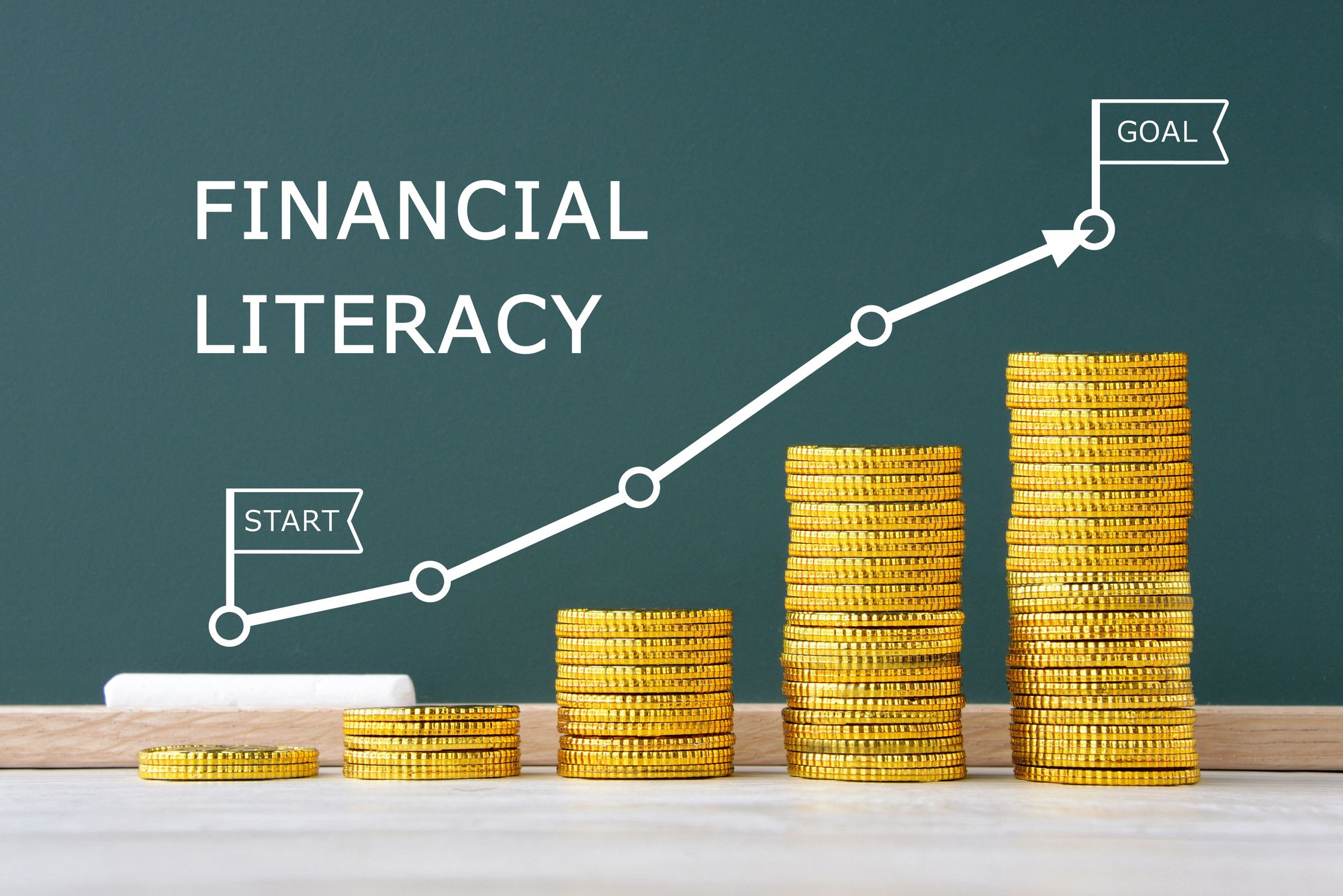Managing money wisely is essential for achieving financial stability and independence. Whether you are just starting your financial journey or looking to refine your money habits, understanding fundamental personal finance advice can make a significant difference. This article explores essential principles, actionable tips, and practical insights that everyone should know to take control of their finances and build a secure future.
Key Takeaways
- Budgeting and saving are the foundation of good personal finance advice.
- An emergency fund protects you from financial shocks.
- Managing and reducing debt improves your financial health.
- Investing early helps grow your wealth over time.
- Retirement planning should start as soon as possible.
- Protect yourself with adequate insurance coverage.
- Continuous learning strengthens your financial decisions.
Understanding Personal Finance Advice

Personal finance advice refers to the guidance and strategies aimed at helping individuals manage their income, expenses, savings, investments, debt, and financial goals. It covers various aspects such as budgeting, saving, debt management, investing, retirement planning, and risk management. Good personal finance advice empowers people to make informed decisions and avoid common financial pitfalls.
In a world where financial decisions are part of daily life, understanding personal finance advice is more important than ever. From the moment you receive your first paycheck to planning for retirement and beyond, the financial choices you make can significantly influence your quality of life. Sound personal finance advice provides the knowledge and tools to navigate these choices wisely, avoid costly mistakes, and build a stable future.
What Is Personal Finance Advice?
Personal finance advice refers to practical guidance and strategies designed to help individuals manage their money effectively. It encompasses various aspects of financial life including budgeting, saving, investing, debt management, retirement planning, and insurance. This advice may come from financial experts, books, online platforms, or personal mentors, and is tailored to help people make informed financial decisions based on their unique situations.
The ultimate goal of personal finance advice is to empower individuals to take control of their financial future, reduce stress, and achieve both short-term stability and long-term prosperity.
Why Personal Finance Advice Matters
Many people were never formally taught how to manage money, yet they’re expected to make critical decisions regarding student loans, credit cards, mortgages, investments, and retirement. Without proper personal finance advice, it’s easy to fall into debt, live paycheck to paycheck, or miss opportunities to grow wealth.
Here’s why understanding personal finance advice is so important:
- Improves Financial Literacy: Helps you make informed choices about money.
- Prevents Financial Mistakes: Reduces the risk of overspending, poor investments, or unnecessary debt.
- Builds Wealth Over Time: Encourages smart saving and investing habits.
- Reduces Stress: Having a financial plan in place provides peace of mind.
- Promotes Independence: Helps individuals become less reliant on others for financial support.
Core Areas of Personal Finance Advice

To fully understand personal finance advice, it helps to break it down into its core areas. Each plays a vital role in your financial health.
Budgeting
Budgeting is the process of creating a plan for how to spend your money. Personal finance advice often starts with learning how to track income, categorize expenses, and prioritize needs over wants. A good budget is realistic, flexible, and tailored to your goals.
Saving
Saving is essential for short-term goals (like buying a car) and long-term security (like retirement or emergencies). Personal finance advice stresses the importance of “paying yourself first” — setting aside money before spending.
Investing
Investing is about making your money grow over time. Sound personal finance advice helps people understand risk, diversification, asset allocation, and how to build a portfolio that aligns with their goals and risk tolerance.
Debt Management
Most people will deal with debt at some point. Personal finance advice provides strategies for reducing and avoiding high-interest debt while using credit responsibly. Understanding the differences between “good debt” (like student loans) and “bad debt” (like credit card debt) is key.
Retirement Planning
Planning for retirement is one of the most crucial aspects of personal finance. Advice in this area includes contributing to retirement accounts, understanding pensions or 401(k) plans, and estimating how much money will be needed to retire comfortably.
Insurance and Risk Management
Protecting your assets is just as important as growing them. Personal finance advice includes evaluating health, auto, life, and disability insurance to ensure you’re not financially devastated by unforeseen events.
Tax Planning
Taxes affect everything from your paycheck to your investments. Personal finance advice often includes ways to legally reduce your tax burden through deductions, credits, and retirement contributions.
Sources of Personal Finance Advice
Managing your money can feel overwhelming without the right guidance. That’s where personal finance advice becomes crucial. Whether you’re budgeting for the first time, investing, managing debt, or planning for retirement, knowing where to get reliable advice makes all the difference. With so many sources available today — from financial professionals to influencers — it’s essential to understand which ones are trustworthy, relevant, and suitable for your specific needs.
Let’s explore the most common and effective sources of personal finance advice in detail.
Certified Financial Planners (CFPs) and Financial Advisors
Certified Financial Planners (CFPs) and other licensed financial advisors are trained experts who provide personalized personal finance advice based on your income, goals, and life circumstances.
What They Offer:
- Tailored financial plans
- Investment strategies
- Retirement planning
- Tax optimization
- Estate planning
- Debt reduction strategies
Pros:
- Advice is specific to your situation
- Advisors are often fiduciaries (legally bound to act in your best interest)
- Ideal for long-term planning and complex financial decisions
Cons:
- Can be costly (flat fee, hourly rate, or commission-based)
- Not all advisors are fiduciaries — some may push products that benefit them financially
Tip:
Look for fee-only fiduciary advisors and check certifications like CFP, CPA, or RIA for credibility.
Books and Personal Finance Literature
Books have long been a go-to source for foundational and advanced personal finance advice. Many classic and modern books break down complex financial topics into digestible lessons.
Recommended Authors and Titles:
- “The Total Money Makeover” by Dave Ramsey
- “Rich Dad Poor Dad” by Robert Kiyosaki
- “Your Money or Your Life” by Vicki Robin & Joe Dominguez
- “The Millionaire Next Door” by Thomas J. Stanley
- “The Psychology of Money” by Morgan Housel
Pros:
- In-depth, well-researched content
- Great for self-paced learning
- Affordable and widely available
Cons:
- Not personalized
- Some books may be outdated or idealistic
Tip:
Choose books that align with your financial stage — beginner, intermediate, or advanced — and critically evaluate the advice based on your own goals.
Online Resources and Blogs
The internet offers a wealth of personal finance advice through blogs, forums, online magazines, and finance news sites. Reputable websites provide practical tips, calculators, tools, and up-to-date market insights.
Trusted Websites:
- NerdWallet
- Investopedia
- The Balance
- Money Under 30
- SmartAsset
Pros:
- Free and accessible
- Covers a wide range of topics
- Often includes interactive tools like budget calculators
Cons:
- Can be overwhelming due to volume of content
- Quality and accuracy vary — always verify sources
Tip:
Look for articles authored or reviewed by certified financial experts (CFPs, CPAs).
Podcasts and YouTube Channels

For many, listening or watching is an easier way to absorb personal finance advice. Podcasts and YouTube are filled with content creators sharing everything from budgeting hacks to in-depth investment analysis.
Popular Podcasts:
- The Dave Ramsey Show
- ChooseFI
- Afford Anything
- BiggerPockets Money Podcast
- So Money with Farnoosh Torabi
Top YouTube Channels:
- Graham Stephan
- The Financial Diet
- Nate O’Brien
- Minority Mindset
- Andrei Jikh
Pros:
- Convenient (great for commuting or multitasking)
- Often relatable and engaging
- Many creators share real-life experiences
Cons:
- Quality varies widely
- Some content is opinion-based or promotional
- Advice may lack depth or context
Tip:
Cross-check what you learn with professional sources and never make big financial decisions based solely on influencer content.
Personal Finance Apps and Tools
Digital tools can provide real-time personal finance advice and insights based on your spending, savings, and financial goals.
Notable Apps:
- Mint (budgeting)
- YNAB (You Need A Budget)
- Personal Capital (now Empower)
- PocketGuard
- Acorns / Stash / Robinhood (basic investing)
Pros:
- Personalized data-driven advice
- Easy to track spending and set goals
- Often includes alerts, summaries, and insights
Cons:
- Privacy concerns (you share your financial data)
- May require subscriptions
- Limited depth compared to a human advisor
Tip:
Use apps to build daily financial habits and pair them with education for deeper learning.
Workplace Financial Education Programs
Many employers now offer access to personal finance advice through HR programs, benefits workshops, or retirement planning sessions.
Common Offerings:
- 401(k) matching and education
- Budgeting workshops
- Access to financial planners or tools
- Student loan repayment assistance
Pros:
- Free or low-cost
- Tailored to employee benefits
- Encourages proactive planning
Cons:
- May be limited in scope
- Not always personalized beyond workplace benefits
Tip:
Take full advantage of employer-provided financial tools and resources. It’s often underutilized free value.
Government and Non-Profit Organizations
Government websites and financial literacy non-profits offer free and credible personal finance advice, especially for low-income individuals or those facing financial hardship.
Resources:
- MyMoney.gov (U.S. government financial education site)
- Consumer Financial Protection Bureau (CFPB)
- National Foundation for Credit Counseling (NFCC)
- FINRA Investor Education Foundation
Pros:
- Trusted, unbiased information
- Free access to tools and guidance
- Often includes debt counseling and housing support
Cons:
- Generalized advice
- Not always easy to navigate or digest
Tip:
Use these as foundational resources for financial education and guidance during hardship.
Family and Friends
Advice from trusted family and friends can be meaningful — especially if they’ve navigated similar financial paths.
Pros:
- Personal and experience-based
- Can provide emotional support as well as advice
- No cost
Cons:
- Not always expert or up-to-date advice
- Can be biased or anecdotal
- May not fit your unique financial situation
Tip:
Value their experiences but always validate their advice with a credible financial source or professional. consuming personal finance advice, it’s essential to evaluate the credibility of the source, especially if they have a financial interest in your decisions (e.g., selling a product or service).
Personalized vs. General Personal Finance Advice
| Aspect | Personalized Personal Finance Advice | General Personal Finance Advice |
|---|---|---|
| Definition | Tailored financial guidance based on individual goals, income, and life stage | Broad, one-size-fits-all tips applicable to a wide audience |
| Source | Financial advisors, planners, or smart algorithms | Books, blogs, podcasts, videos, and general online content |
| Specificity | Highly specific and customized | General concepts and best practices |
| Cost | Often paid (hourly, flat fee, or commission) | Usually free or low-cost |
| Examples | Retirement planning for a teacher in their 40s; debt plan for single parent | “Create a budget,” “Save 20% of your income,” “Avoid credit card debt” |
| Benefits | Helps reach individual goals faster; accounts for unique needs | Easy to access; good for building financial literacy |
| Drawbacks | Can be expensive; requires vetting advisor credibility | May not apply to all situations; lacks depth |
| When to Use | Major life changes, high income, complex goals | Early stages of learning, simple budgeting, or broad financial understanding |
| Level of Detail | Deep analysis of personal finances and planning | Surface-level overview or educational insights |
| Tools Involved | Financial modeling, personalized projections, tailored portfolios | Budget templates, general calculators, basic financial advice articles |
| Best For | Individuals with specific goals or complex financial situations | Beginners or those seeking foundational knowledge |
General personal finance advice is widely applicable, such as “create a budget” or “save for retirement.” It forms the foundation of good financial habits and is useful for most people regardless of income or background.
Personalized personal finance advice, on the other hand, takes into account your specific income, goals, family needs, and financial challenges. This is where financial advisors or financial planning software can add significant value.
For example:
- A college student might benefit more from debt management and budgeting advice.
- A mid-career professional may need investment and tax planning strategies.
- A retiree would focus on income distribution and estate planning.
The Psychology Behind Personal Finance Advice
Behavior plays a huge role in financial decision-making. Often, people know what they should do but struggle to follow through. Emotional spending, peer pressure, fear of missing out (FOMO), or lack of confidence can derail even the best financial plans.
Understanding this human side is part of the most effective personal finance advice. It emphasizes:
- Building discipline through habits
- Setting clear, meaningful goals
- Rewarding yourself for financial progress
- Avoiding comparison with others’ lifestyles
The Evolution of Personal Finance Advice
Historically, personal finance advice was simple — save money, avoid debt, and buy a home. Today, the financial world is much more complex. People face:
- Student loan debt
- Gig economy income
- Cryptocurrency and digital assets
- Market volatility
- Rising living costs
Modern personal finance advice evolves with the times and includes tools like budgeting apps, robo-advisors, online investment platforms, and virtual banking.
The Importance of Personal Finance Advice
In today’s fast-paced world, financial challenges are common. From managing everyday expenses to planning for major life events, effective personal finance advice is crucial for maintaining peace of mind and securing financial well-being. Many people struggle with debt, lack savings, or make impulsive spending decisions that hinder their financial progress. By following proven personal finance principles, individuals can create a roadmap that leads to better money management, reduced stress, and long-term wealth accumulation.
Key Principles of Personal Finance Advice Everyone Should Know
Create a Realistic Budget
One of the foundational pillars of sound personal finance advice is creating and maintaining a realistic budget. Budgeting helps track income and expenses, ensuring that you live within your means and allocate funds toward savings and investments.
Start by listing all sources of income, followed by fixed and variable expenses. Identify areas where you can cut back and prioritize essential spending. A well-planned budget prevents overspending and encourages mindful financial habits.
Build an Emergency Fund
Unexpected expenses can disrupt your financial stability. Establishing an emergency fund is vital personal finance advice that cushions you against sudden job loss, medical bills, or urgent repairs. Aim to save at least three to six months’ worth of living expenses in an easily accessible account.
Manage and Reduce Debt
High-interest debt, especially credit card debt, can quickly erode your financial health. Effective personal finance advice emphasizes reducing and managing debt by paying more than the minimum balance and avoiding unnecessary borrowing.
Consider strategies such as the debt snowball method (paying off smaller debts first) or debt avalanche method (tackling highest-interest debts first) to accelerate repayment.
Save and Invest for the Future
Saving regularly and investing wisely are key components of solid personal finance advice. Start saving early, even if the amounts are small, to benefit from compound interest over time.
Diversify your investments across stocks, bonds, mutual funds, or retirement accounts based on your risk tolerance and financial goals. Investing helps grow your wealth and protects against inflation.
Plan for Retirement
Retirement planning is essential personal finance advice for securing your future independence. Contribute to employer-sponsored retirement plans like 401(k)s or individual retirement accounts (IRAs). The earlier you start, the more time your money has to grow.
Estimate your retirement needs and periodically review your plan to stay on track.
Protect Yourself with Insurance
Insurance is a critical but often overlooked area of personal finance advice. Health, life, disability, and property insurance safeguard you and your family from financial hardships caused by unforeseen events.
Evaluate your insurance needs and choose appropriate policies to mitigate risks.
Continuously Educate Yourself
Financial literacy is a cornerstone of effective personal finance advice. Keep learning about money management, investment options, tax strategies, and economic trends. Reliable resources include books, podcasts, online courses, and financial advisors.
Practical Tips for Applying Personal Finance Advice
- Automate your savings and bill payments to avoid missed deadlines and build consistent savings.
- Track your spending regularly to identify wasteful habits and adjust accordingly.
- Avoid lifestyle inflation by keeping expenses in check even as your income grows.
- Set SMART (Specific, Measurable, Achievable, Relevant, Time-bound) financial goals.
- Regularly review and adjust your budget and investments based on changing life circumstances.
Common Mistakes to Avoid in Personal Finance
Ignoring personal finance advice can lead to costly mistakes such as:
- Relying solely on credit without a repayment plan.
- Neglecting retirement savings until it’s too late.
- Falling for “get rich quick” schemes or high-risk investments without research.
- Living paycheck to paycheck without an emergency fund.
- Overlooking insurance needs and exposing yourself to financial risk.
By steering clear of these pitfalls, you can maintain financial health and build lasting wealth.
Also Read: How Can Financial Planning Help You Achieve Your Goals?
Conclusion
Understanding and applying sound personal finance advice is fundamental to achieving financial well-being and independence. By creating budgets, managing debt, saving strategically, and educating yourself, you can build a secure financial future. Remember, financial success is a journey that requires consistent effort, discipline, and adaptability.
FAQs
Q1: What is the most important personal finance advice for beginners?
The most important advice is to create a budget and start saving consistently, even if the amounts are small.
Q2: How much should I save in an emergency fund?
Aim to save three to six months’ worth of essential living expenses to cover unexpected financial setbacks.
Q3: Should I pay off debt or save first?
Generally, pay off high-interest debt first while building a small emergency fund, then focus on saving and investing.
Q4: How can I improve my credit score?
Make timely payments, keep credit utilization low, and avoid opening unnecessary credit accounts.
Q5: When should I start investing?
As early as possible, even with small amounts, to maximize compound growth over time.
Q6: Is it better to use a financial advisor?
A financial advisor can provide personalized guidance, especially for complex financial situations or investment strategies.
Q7: How often should I review my financial plan?
Review your financial goals, budget, and investments at least annually or when major life changes occur.



